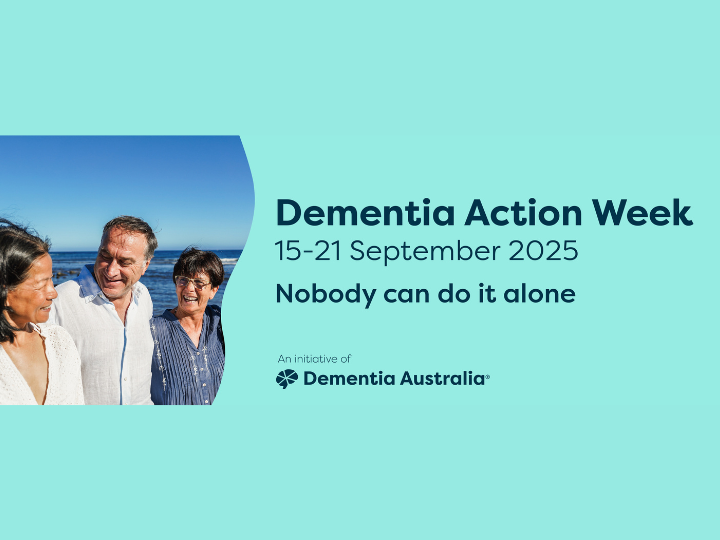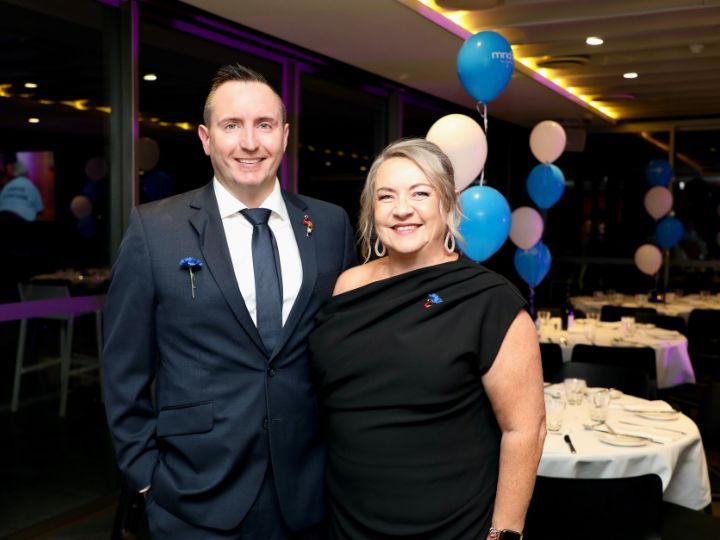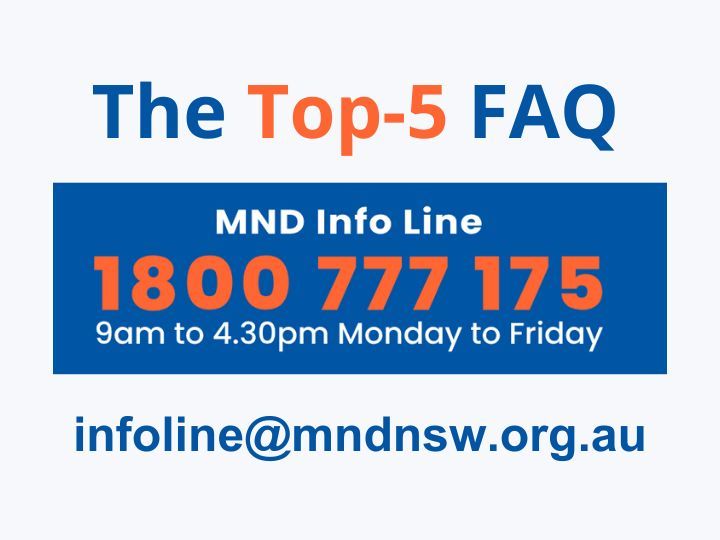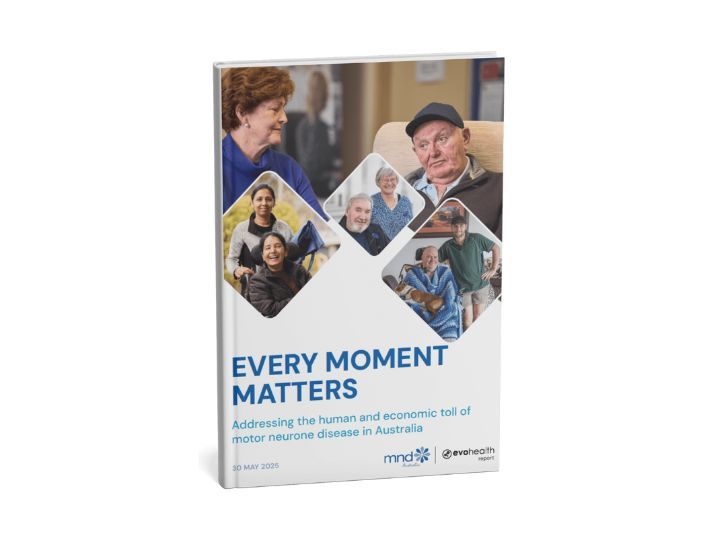15-21 September 2025 is Dementia Action Week. It is an important time to raise awareness about the different ways dementia can affect people, including those living with Motor Neurone Disease with Frontotemporal Dementia (MND/FTD).
This year, Dementia Australia is highlighting that a diagnosis of dementia leads to social isolation and loneliness which can further drive stigma and discrimination. They are challenging everyone in the community to reach out or reconnect to someone impacted by dementia because nobody can do it alone.
At MND NSW, we want to shine a light on MND/FTD, share what it might look like in everyday life, and provide practical tips and support for families, carer, and health professionals.
What is MND/FTD?
Up to 15% of people with MND also experience changes in the frontal and temporal lobes of the brain. This is known as MND with Frontotemporal Dementia (MND/FTD).[1]
These areas of the brain control things like mood, social behaviour, judgement, language, and self-control. Often, the symptoms of dementia arise before the motor symptoms, sometimes by a number of years.[2]
Recognising the early signs and seeking assessment is key to planning care and putting strategies in place.
What to look for
Changes may affect cognition, language, and behaviour.[3] Some examples may include,
- Cognition: Difficulty concentrating on conversations or adapting to changes in routines.
- Language: Struggling to find the right words or slowed speech
- Behaviour: Acting impulsively or loss of motivation in hobbies and daily activities.
The risk of loneliness and isolation
For people with MND/FTD, changes in communication, behaviour, and cognition can lead to social withdrawal. Friends or family may not understand the changes and the person may find socialising overwhelming or frustrating.
This can result in feelings of loneliness and isolation for both the person living with MND/FTD and their carers.[4] Staying connected, even in small ways, can make a big difference.
What can help:
- Encourage regular social contact in ways that feel manageable. For example, short visits, phone calls, or online social activities.
- Educate friends and family about MND/FTD so they understand changes are a normal part of the disease.
- Join peer support groups through MND NSW or Dementia Australia.
- Carers should also seek respite and support for themselves as they often report feeling isolated. For more information for carers of people with MND/FTD, check out our recent blog: Practical support and tips for MND/FTD carers
Who can help
Health professionals who can help to diagnose, treat and manage cognitive and behaviour change include a general practitioner, neurologist, psychologist, clinical neuropsychologist, geriatrician and behaviour support practitioner.
A speech pathologist, occupational therapist and your MND Advisor can also support.
View a list of health professionals and their role in supporting people with cognitive change: Cognition, Thinking & Behaviour in MND | MND Australia
Other practical tips for people with MND/FTD
- Create routines: this can help reduce stress and confusion
- Modify the environment: Use labels or reminders around the home
- Support safe eating by preparing familiar food and be flexible as food preferences may change over time
- Look after yourself: living with MND/FTD can be challenging, make sure you access respite, counselling or peer support groups when you need.
Support is available
At MND NSW, we support people living with MDN/FTD and their families by
- Providing information and resources
- Connecting people with MND/FTD and their families to supports and services
- Providing support through our MND Advisor, FlexEquip, COS, and Carer programs
Contact us on 1800 777 175 or email
For broader dementia resources and advice, contact the National Dementia Helpline on 1800 100 500
Find out more
- Dementia Action Week | Dementia Australia
- Cognition, Thinking & Behaviour in MND | MND Australia
- Types of MND: ALS, PLS, PBP, PMA, MND/FTD
- Frontotemporal dementia | Dementia Australia
References
[1] Types of MND, MND Connect, MND Australia, Types of MND: ALS, PLS, PBP, PMA, MND/FTD, accessed 2025
[2] Factsheet Cognitive and behaviour change, MND Connect, MND Australia, MND Factsheet: Cognitive & Behaviour Change | MND Australia, accessed Aug 2025
[3] Frontotemporal Dementia, Dementia Australia, Frontotemporal dementia | Dementia Australia, accessed 2025
[4] Psychosocial support for people with MND, MND Connect, MND Australia, Psychosocial support, accessed 2025




